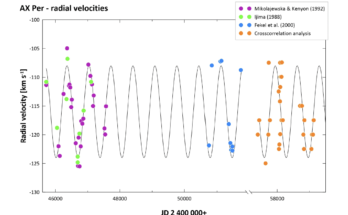Continue to article page to display article full-text.
Probably everyone has some at least intuitive understanding what the nature of the relation of human beings to the world is and what role does the human autonomy in this relation play. Within the area of ordinary population, we mainly meet the view that humans are free – that it is obvious. We have an immediate intuition that although we have acted in a certain way, it was possible for us to act in another one, had we decided so; our intuition tells us, therefore, that our free action in a strong sense depended on us. Here we can recognize not only that people presuppose the existence of human freedom, but they also tell us something about its nature We can approximate it by means of the two following characteristics: 1) free action, as such, requires a type of contingency, so that an alternative possible world in which given action does not occur must exist; 2) a free action must depend on its agent, it cannot be but a mere result of some causes different from the agent. How philosophers further define and use the concept of freedom depends on which of these two aspects they conceive of as primary. Our approach in the paper presented demands the second characteristic – that for the agent to be free, one must act on the basis of one’s own internal motives. Whether does one have an ability to act at the same time otherwise – that is secondary or indifferent to this fact. Furthermore, in the second chapter of present paper we show that a radicalization of the first characteristics (the possibility to act alternatively) is ontologically highly problematic, and that it is fully irrelevant for human freedom. The decisive criterion is whether given act is (morally) attributable to the agent – whether one is “meritable” for it or, again, whether its occurrence really depends on him. And it is the possibility of, as well as a theoretically based ndefinition of, such an understanding of freedom, what is our paper intended to provide. The aim just fixed is not as unproblematic as one might think, however. Some strong arguments of both a priori and a posteriori types exist, according to which there is – or even can be – no such a thing as the “agent’s autonomy”, “agent’s causality” or the like. The world basically works, or necessarily works, too deterministically. While considering this objection, we briefly discuss some conclusions of neurosciences and physics, which, so is thought by some interpreters, contradict freedom of the will. Despite this, we have made an effort to show that freedom, after all, really is possible.
 Benedikt Mrazek studies the graduate class at Dr. Emil Holub Gymnasium in Holice. His main interest is focused on philosophy, especially metaphysics; concretely, he studies the problem of free will and the problem of analogy or univocity of being. He had competed in several contests, such as Philosophical Olympiad, where in 2020 and 2021 he won third places, and in 2022 and 2023 he won the first places. In 2023, he won the first place in the philosophical contest Don’t be afraid to think. He had also attended the Student Professional Activities three times, where in 2022 he won second place with his work on Thomas Aqunas’ conception of free will and its relation to determinism, wherefore he has been nominated to International Swiss Talent Forum 2023 and has received the Prize of the Learned Society of the Czech Republic. In 2023, he won the contest with his thesis on the unity and plurality of being and the analogy of being. In future, Mrazek wishes to continue in his current interests in various metaphysical issues and to study philosophy and logic at universities in Prague and in České Budějovice. Besides philosophy, he also does sports karate (his technical grade is 3rd kyu).
Benedikt Mrazek studies the graduate class at Dr. Emil Holub Gymnasium in Holice. His main interest is focused on philosophy, especially metaphysics; concretely, he studies the problem of free will and the problem of analogy or univocity of being. He had competed in several contests, such as Philosophical Olympiad, where in 2020 and 2021 he won third places, and in 2022 and 2023 he won the first places. In 2023, he won the first place in the philosophical contest Don’t be afraid to think. He had also attended the Student Professional Activities three times, where in 2022 he won second place with his work on Thomas Aqunas’ conception of free will and its relation to determinism, wherefore he has been nominated to International Swiss Talent Forum 2023 and has received the Prize of the Learned Society of the Czech Republic. In 2023, he won the contest with his thesis on the unity and plurality of being and the analogy of being. In future, Mrazek wishes to continue in his current interests in various metaphysical issues and to study philosophy and logic at universities in Prague and in České Budějovice. Besides philosophy, he also does sports karate (his technical grade is 3rd kyu).




